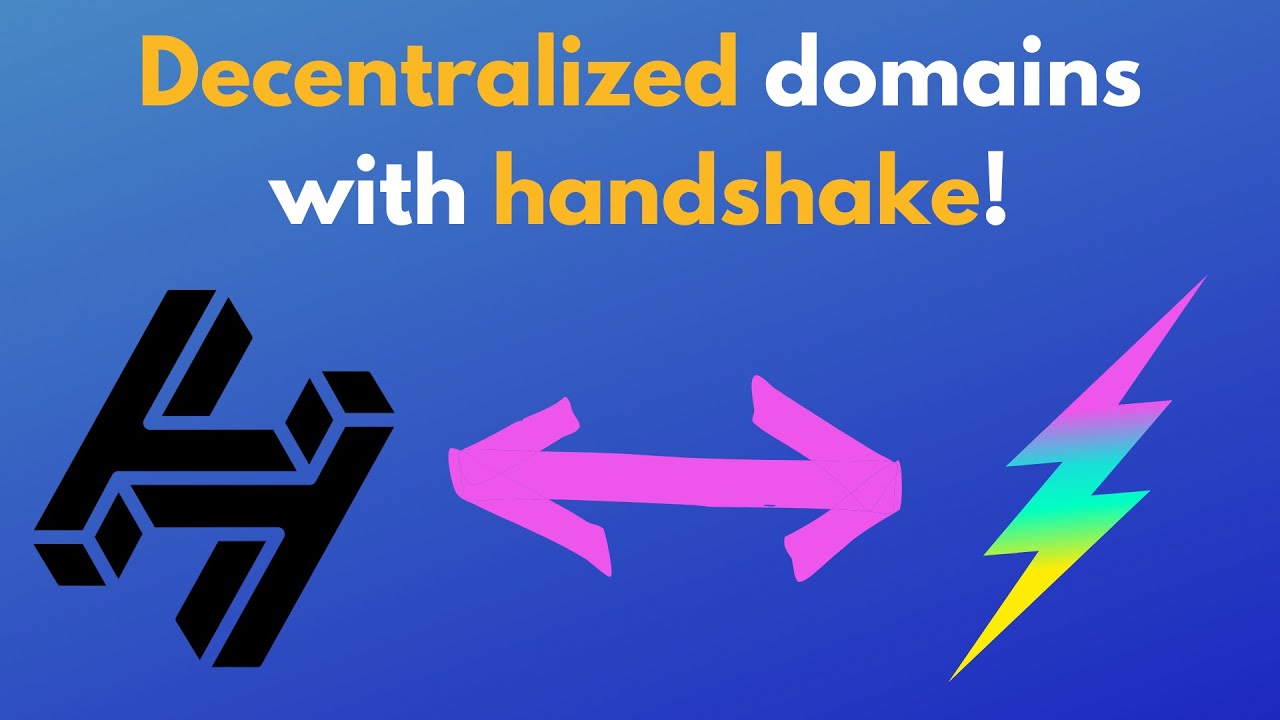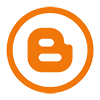
1. What is Handshake?
The Handshake Naming System (HNS) is a new approach to the Internet that uses a decentralized system with blockchain technology to offer a freer and more secure option for web users. Handshake offers access to new domains that you won’t find with most domain name registrars.
Instead of working within the traditional naming conventions of the Domain Name System (DNS), which consists of familiar options like .com, .org, and .gov, Handshake allows for millions of new, unique domains. These names are available on the Handshake blockchain — which is free from oversight from organizations like ICANN — to give owners more control over their websites.
2. Why do I want a Handshake domain?
A Handshake domain functions just like traditional domains available through the domain name system (DNS) when accessed with a DNS resolver. However, using a Handshake domain provides a few key advantages, including:
• Online freedom: Handshake minimizes the role of centralized authorities, which means more freedom of expression online. At the same time, the blockchain ensures the permanence of each Handshake site, thereby eliminating the chance of outside interference and creating a corruption-resistant online space.
• Safe from seizure: The blockchain-based system means that Handshake TLDs can’t expire, be deleted, or be seized by the government, ICANN, and other authorities.
• Protection without CAs: Handshake users don’t need a Certificate Authority (CA) to act as a middleman for verification and security. Instead, Handshake domain owners sign and control their own private keys for authentication purposes.
• More privacy: Users enjoy more anonymity when they use Handshake compared to traditional domains, which have to be registered with a third party.
• Unique web addresses: Handshake offers a number of distinctive TLDs to set your identity apart. Examples include .pgp, .p, and .j.
Regular domains like .com and .org are under the control of ICANN. When you have a Handshake domain, it’s under your control. You’re free to use it as you please without oversight or censorship from outside organizations.
Another benefit of choosing a Handshake domain is enhanced security. Most websites are verified by certificate authorities (CAs). If a CA is attacked, sites may be susceptible to massive phishing scams, arbitrary take-downs, or data breaches. That’s not a concern when you’re using a domain on Handshake’s blockchain.
3. How can I use a Handshake domain?
Once you’ve registered your Handshake domain, you can use it however you like. There are a number of practical uses for Handshake domains, including:
• Build a website: Just like you can create a website with a traditional domain name, you can also use your Handshake domain to host your own personal or business website.
• Redirect to another site: If you already have a website, you can use your Handshake name to point to it. The unique domains available through Handshake, such as .p, .oh, and .sox, add a distinctive element to your web address and can act as URL shorteners that are easy to remember.
• Create a cryptocurrency wallet: A Handshake domain can serve as a secure wallet for your cryptocurrency. The address can even be used to make or receive payments online.
4. How do you register a Handshake domain on NiceNIC.NET?
The process to register a Handshake domain on NiceNIC.NET is the same as registering a traditional DNS domain.
Simply search for an available name, click the “HNS” button on the right-hand side of the search bar, and view the available Handshake domain extensions from our list. Choose the name you want, then add it to your Shopping Cart. Click on the Checkout button when you’re ready to make your purchase. Then, you can log in to your NiceNIC.NET account (or create one) to configure your domain.
5. What browser can I use to access Handshake domains?
Most browsers, including Chrome, Safari, Firefox, and Microsoft Edge, aren’t compatible with the Handshake blockchain by default. However, if you use one of the recommended DNS resolvers for Handshake domains, your browser will be able to navigate to any Handshake website.
6. What is a DNS resolver?
In order to access Handshake domains, users need a DNS resolver.
This is a tool that allows computers to connect to the Handshake blockchain, which most web browsers aren’t able to access by default. But once you set up your resolver, you’ll be able to navigate to Handshake domains just like you would any other web address.
There are a number of DNS resolver options that work with Handshake, including NextDNS, VPNs, and HSD/HDNS nodes.
7. How is the Handshake Naming System (HNS) different from other decentralized DNS servers, like Unstoppable Domains and Ethereum Name Service (ENS)?
Both Unstoppable Domains and ENS have some limitations that you won’t find on HNS, including:
• Limited domains: The domains you can use are limited with ENS (.eth) and Unstoppable Domains (.crypto or .zil). Handshake, on the other hand, offers practically unlimited domains.
• No root zone: Rather than replacing DNS, Handshake only replaces the root zone file by connecting certificates and names to its own blockchain. With Unstoppable and ENS, domains aren’t anchored by a root zone, which limits full ownership of the domain.
• Progressive decentralization: Because Handshake functions more smoothly within the existing DNS framework, it offers a stepping stone on the way to decentralization, which encourages user adoption. Unstoppable and ENS represent a more abrupt shift to decentralization that makes them harder to integrate for most Internet users today.
• No unique blockchain: Neither Unstoppable nor ENS has its own cryptocurrency. HNS, the native crypto token for Handshake, exists on its own blockchain that functions independently of other blockchains, which helps to ensure security and privacy for users.
8. What is the difference between Handshake and Namecoin?
Namecoin was an earlier attempt to decentralize the Internet that came before Handshake. Though the effort had many of the same goals as the current Handshake network and also used a fork of Bitcoin as its cryptocurrency, it ultimately was not successful.
Fortunately, the experts behind Handshake were able to learn from some of the issues that Namecoin encountered.
For example, Handshake is easier to use, integrates more seamlessly with the existing DNS system, and has an auction process that makes it more accessible to individuals as well as corporations. It also uses Simple Payment Verification (SPV), which allows domain names to be resolved on the Handshake blockchain without having to download the blockchain’s full state.
Namecoin launched at a time when blockchain technology was less widely accepted and understood. Handshake is primed for success now that most Internet users are already well aware of blockchains, cryptocurrency, and their benefits.
9. What are the pros and cons of decentralized systems on the web?
Some people argue that the Internet is already fairly decentralized considering that anyone can connect through any Internet Service Provider. So, with alternatives like Handshake, it’s important to consider what pros and cons a decentralized web (dWeb) has to offer.
A decentralized web (dWeb) offers a number of advantages for users, including:
• Less censorship: There is minimal gatekeeping and oversight on decentralized systems, which gives users more opportunities for open expression.
• More security: The use of the blockchain provides increased resistance to security scams and hacking attempts.
• Increased innovation: The dWeb can encourage more innovation when it comes to open source development of online products and tools.
• Internet equality: Users of decentralized systems have more power than in online spaces where a few organizations hold most of the power.
There are also some limitations and possible drawbacks to decentralized systems on the web, such as:
• Ease of access: dWeb applications typically require additional steps to access compared to traditional browsers (like setting up a DNS resolver, for example), which could inhibit user adoption.
• Regulatory and legal risks: Because there is less oversight on the dWeb, it’s also more difficult to police cybercrimes like online harassment and child abuse images. If crimes are detected, it won’t be immediately clear which country’s laws should apply to each website.
• Personal responsibility: Individual dWeb users own all of their activity and data online, which requires increased responsibility on a personal level. For example, sites like Facebook and Twitter can try to limit the spread of misinformation online, but that type of oversight isn’t available on decentralized systems.
10. Is my Handshake domain 100% secure from scams and hacking attempts?
While no domain is completely protected against all types of security risks, the fact that Handshake domains are registered on the blockchain does make them more resistant to attacks. When registering a Handshake domain, your security level is closely tied to how well the owner or administrator of the top-level domain (TLD) manages their keys and whether they follow good security practices.
That’s why it’s a good idea to register your Handshake domain with NiceNIC.NET, where maintaining website security and privacy for every user is a top priority. We keep your personal data hidden with free Domain Privacy protection, and we never share any personal details you enter when registering your domain.
Domain Name - Register Domain - Transfer Domain - Bitcoin - USDT
ICANN & Verisign & HKIRC Accredited Registrar
Shared Hosting & Dedicated Server Provider (HK)
Next News: What's Handshake Domain? How to access Handshake Domains?

















